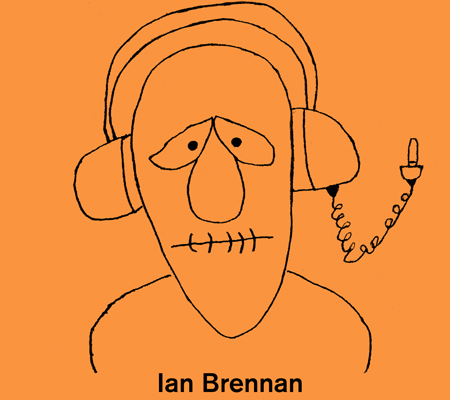
By Nigel Williamson
Songlines
January 2020
Ian Brennan gave one of the more thought-provoking interviews published in this magazine (#130) in which he expounded his philosophy of giving voice to the unheard and overlooked and explained his search for ‘emotional truth’ in music. He explored the same themes at greater length and rather brilliantly in his 2016 book, How Music Dies (Or Lives): Field Recordings and the Battle for Democracy in the Arts (reviewed in #116). This follow-up volume explores similar ideas and theories, albeit somewhat less cohesively.
That is deliberate on Brennan’s part, for he conceived Silenced by Sound not as a linear narrative but as a book ‘designed to be read randomly, opened at any page and sampled.’ The result is 60 or so short pieces, some only half a page long and only a handful of them more than two pages. Several draw on his personal experience recording unknown musicians from the Malawi Mouse Boys and Cambodia’s Khmer Rouge survivors to pygmies and prisoners in Rwanda and an albino collective in Tanzania. Other entries are little more than notebook jottings— precepts and aphorisms that challenge the superstar system and the notion of ‘heroic authorship, according to which one individual is believed to be gifted beyond the reach of mere mortals.’ We should all search for the Mozart or McCartney inside ourselves.
Brennan’s facility for an ear-catching slogan has an undoubtedly populist appeal. You can’t help chuckling out loud at his cartoonish fantasy of sending the music police after Bono to command him ‘Please sir, put the microphone down. Slooowly. And keep your hands where we can see them.’ But he’s capable or profoundly poetic phrases, too, such as his evocation of the memory of a lost relative with the words, ‘If I could sing you back to life I would, to the place where it all just becomes a single hymn.’
By all means keep this book by your bedside and dip into it at random, as its author suggests. But if you haven’t already read it, for a more cogent and satisfying exposition of Brennan’s always challenging ideas and his one-man crusade to demonstrate music-making, start with How Music Dies (Or Lives).






